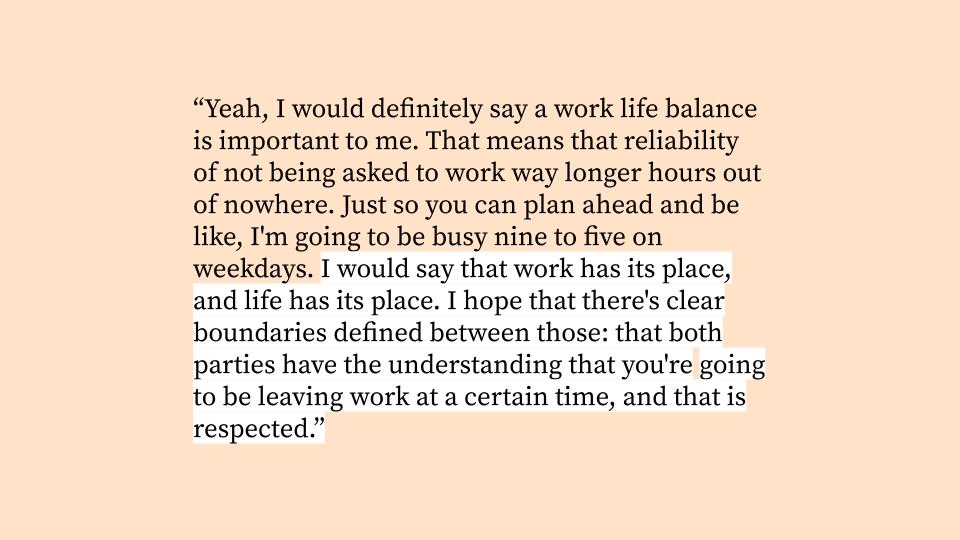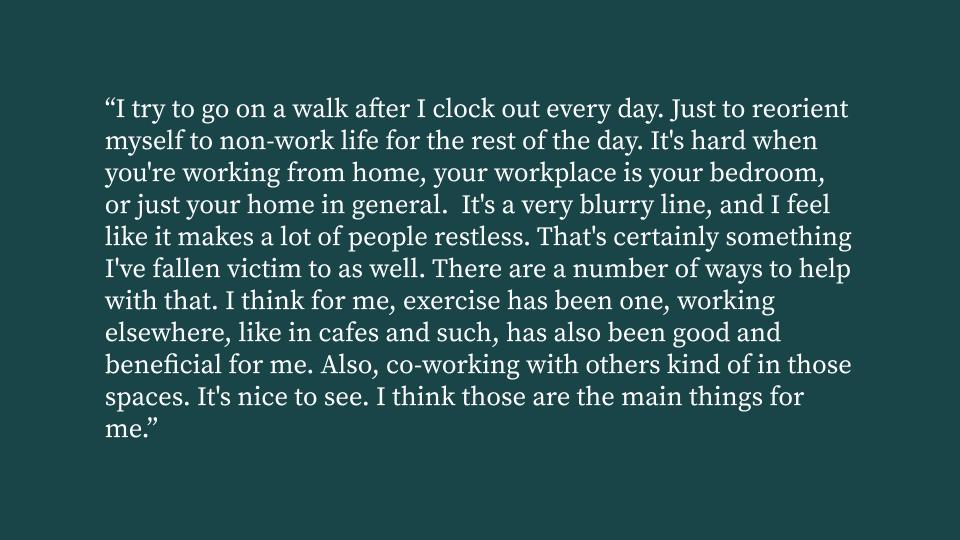This is the last part of advice. Since work-life balance seemed to be one of the most important aspects of sustainable work, I asked workers what work-life balance looks like to them.
A respondent described a work life balance as:
“Having more control over my life than work has control over my life”.
There are so many challenges to disconnect from work, from incessant demands to remote work intruding on your home.
“Working remotely has made it very difficult to disconnect. Because work is just, right there. You’re at home, you don’t have a commute, it just feels like I’m already here, minus well keep working. And it’s been hard to get myself away from that and be like, I shouldn’t be working extra just because I’m working at home.”
“Disconnecting from work is actually kind of hard for me just because since I work from home I have and I don’t have an office, I have my work station right in my room. And right next to my work station, I have my personal computer. So if I look to the left, it just reminds me of work. And it’s pretty stressful.”
But while it was challenging, it was one of the biggest things workers wished they had.
So now, aside from what a good work-balance looks like, I asked workers: “what helps you maintain a work-life balance?” in order to understand their techniques and habits that they’ve gained to develop and preserve their work life balance.
QUESTION: How do you manage your work life balance?
When considering this question: think about what you want out of your own work-life balance. What is meaningful to you, and what won’t you compromise on? How do you place those values first? What habits, actions, or practices maintain that?
I try to not answer any emails after five (or an absolutely necessary time). I think that if you don’t set the expectation you will, it’s easier to disconnect.
I want to end the Advice section with a question.
What if work could be better? What if work could be fulfilling, growth promoting, and economically sustainable?
One worker put it:
“I think it’s also interesting to note that, all these things about a good job or what you want work to look like, are still pretty antithetical to the standard, capitalistic, stereotypical job is right now, at least in the United States. And I wonder sometimes what a world would look like if we approached work differently?”
Work isn’t like this everywhere. Respondents from different countries noted how this culture doesn’t expand everywhere. For example, in Europe, there are many more regulations and safeguards in place to protect employees’ rights, particularly around being contacted outside of work, having access to fair paid time off, and better workplace protections. We just don’t have that here.
It is important to support policies and elected officials that support workers’ rights at all types of workplaces and pay scales. It is important to support organizations and groups that try to provide and promote these rights, and it is equally as important to create critical and open dialogue in our own lives and organizations about what we want work to look like.
But for now:












